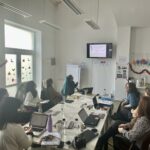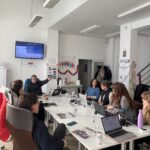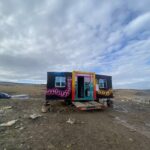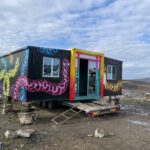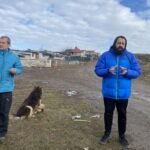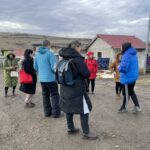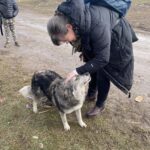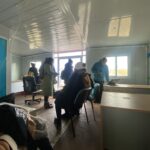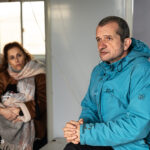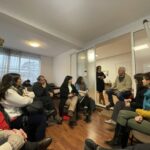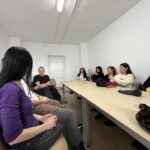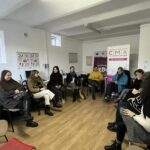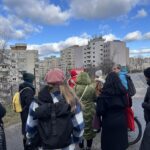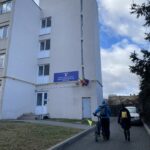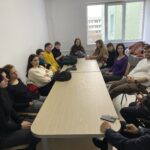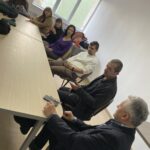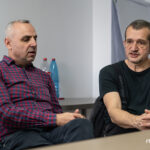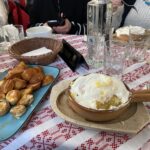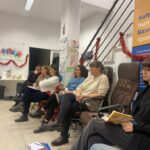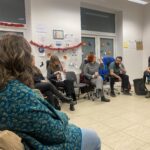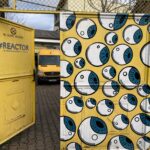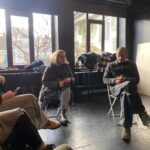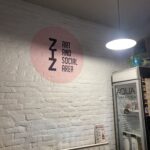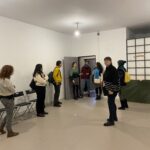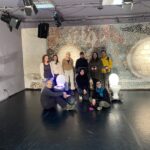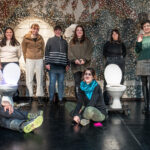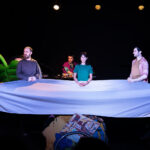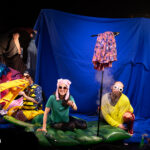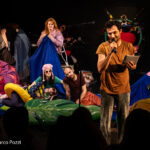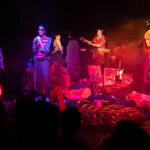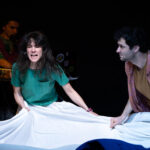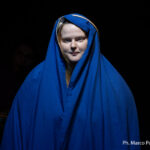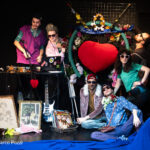On 25th and 26th January 2024, the PerFare partnership participated in the fourth project field visit, hosted by AltArt Foundation in the beautiful city of Cluj-Napoca, unofficial capital of the Transylvania Region in Romania.
Behind the lively university life and rich history, persistently felt all around the city, lies a capillary cultural scene that is strongly focused on the social benefit of each and every people.
Roma people: a long forgotten community
In particular, rights for Roma people are often addressed. Associations like Social Fiber, Shoshin Theatre and AltArt itself have implemented or currently have ongoing projects aimed at the improvement of the severe discriminating conditions that Roma people face on a daily basis.
The CMA – Cluj Metropolitan Area, which comprises Cluj-Napoca and 19 nearby communes: Aiton, Apahida, Baciu, Bonţida, Borșa, Căianu, Chinteni, Ciurila, Cojocna, Feleacu, Floresti, Gilău, Gârbău, Jucu, Petresti de Jos, Săvădisla, Sânpaul, Tureni, Vultureni, has worked with the association Desegregare in the amazing Pata-Cluj project, followed by Pata 2.0, relocating Roma people from the Pata Rât area in new apartments in the city centre, with the aim to give back the right for a future back to the community.
From 2014, the Desegregare association has joined forces with other local stakeholders to fight for the rights of this millennial community, also engaging in cultural activities such as art and music for the Pata Rât children and teenagers, together with Social Fiber and AltArt Fundatia.
The theatre company REACTOR, born in 2014 and active in the social theatre field thanks to specific activities linked to issues among youngsters, also organized a theatre performance in Pata Rât, together with AltArt, in 2016.
Within all the actions activated in the area, the Khetane Festival is a worth mentioning best practice that brought – for the first time ever – around 700 people from the city into the Pata Rât community thanks to its incredible programme.
Practices for youths and elderly
The social vein of Cluj-Napoca is also visible when it comes to initiatives for youngsters and elderly people.
For instance, the FRCC – Romanian Foundation for Children, Community and Family is a day care institution located in the city centre, supported by UK funds and private funds, where teenagers in poverty and/or with psychological disorders can meet after school to be followed by a team of psychologists, educators, teachers and social animators. During their stay, which is determined according to one or more “interventions” lasting 6 months, guests are supported with school activities and engage in extracurricular activities, where arts such as painting, handwriting and music are explored (also in view of discovering each kid’s vocation).
As for the elderly, DASM collaborates with the City Municipality and other associations to provide consistent care for elderly. It consists of 2 day care centers where they use art as a tool to improve aging conditions. Their guests paint, make music, sing, dance, organise shows and even participated in an Erasmus+ project where a group of 15 people travelled in Europe attending museums, in order to improve their skills in digitalisation.
DASM is also involved in a plan for building a cultural centre in Pata Rât that will provide sport and cultural activities, along with services like washing machines and psychological and social assistance.
The good practices existing in Cluj-Napoca are definitely too many to list in one go.
Explore the links to know more about each reality introduced.
And now, just enjoy some pictures from the study visit:
Also, keep following us on Facebook, Instagram and Vimeo.
Subscribe to our newsletter to receive all the updates on PERFARE and its journey directly on your emails.

